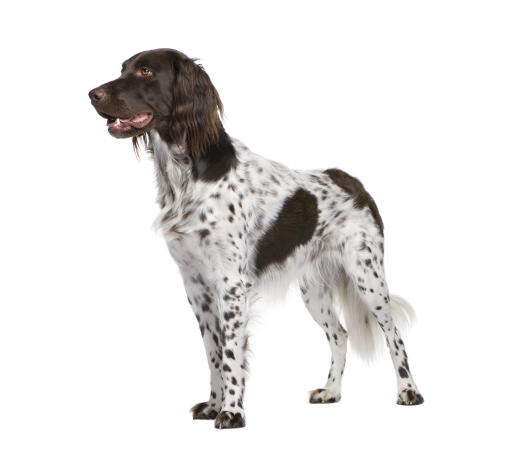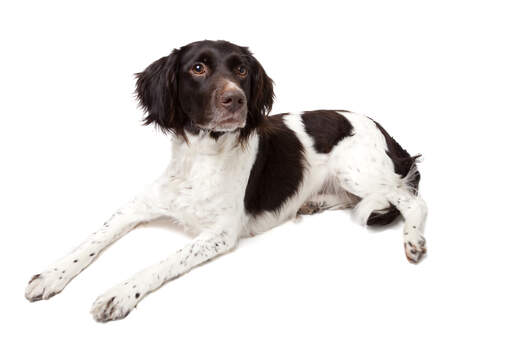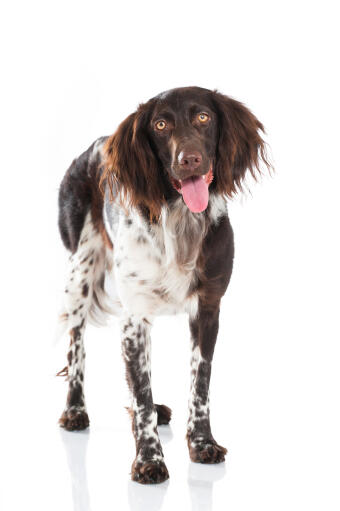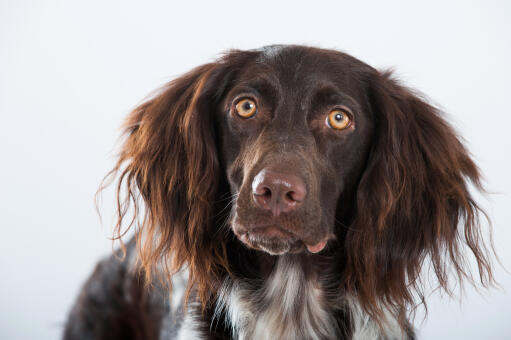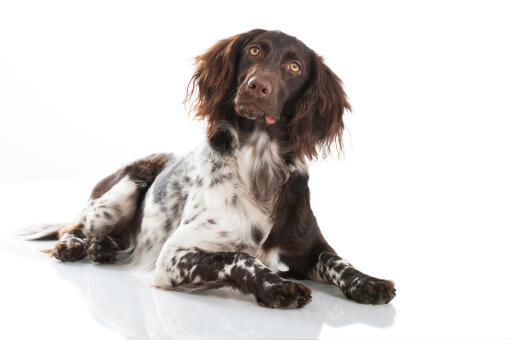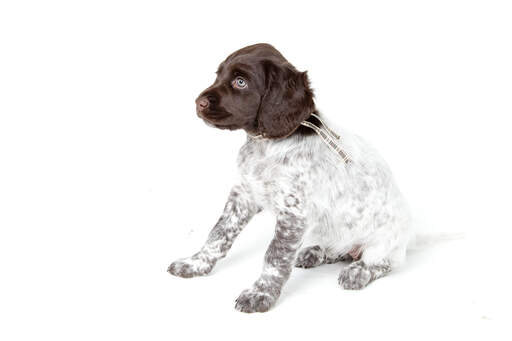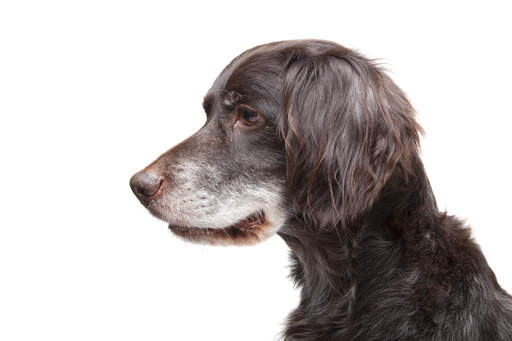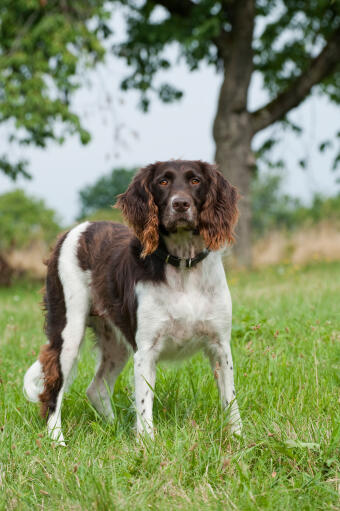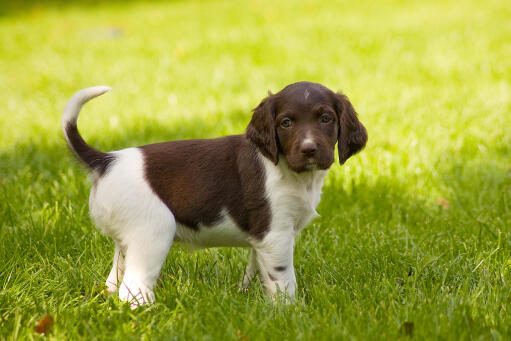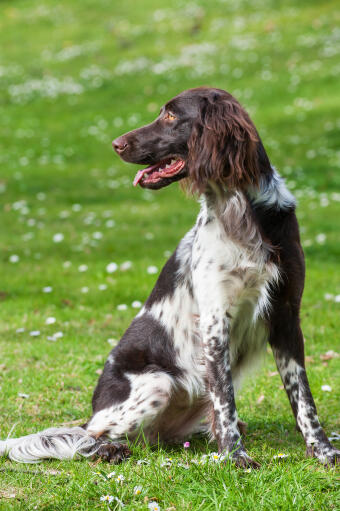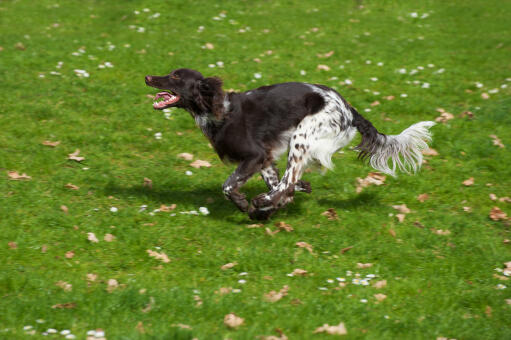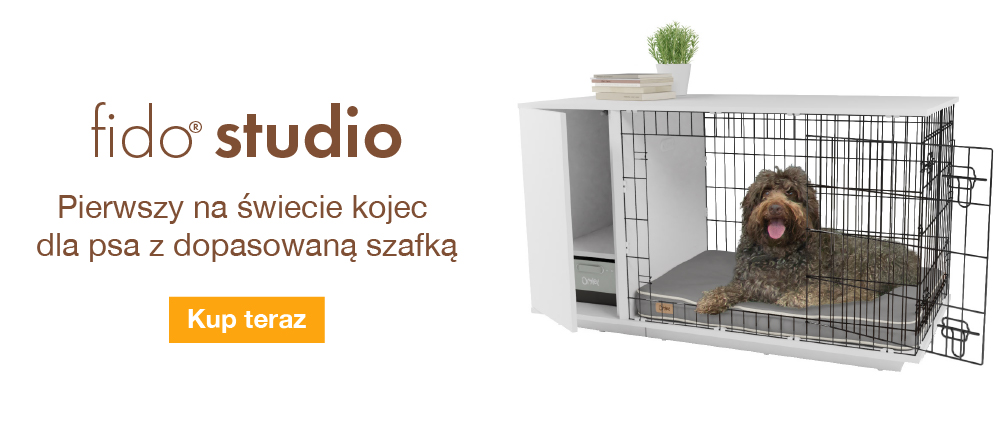Small Munsterlander Dogs











Historia i wygląd
The Small Munsterlander originates from the Muenster region of Germany and is probably well over 500 year old. They were kept by elite families and were used in conjunction with falcons to hunt various types of prey, ranging from grouse, duck and even deer and fox. The dog would locate and point to the prey, before the hunter would release the falcon to make the kill. The dog would them point to the kill for the hunter to find. They work closely with their owners and rarely stray too far. In the early 20th century, 'commoners' started using the breed for hunting and it soon became popular. It is not related to the Large Munsterlander, but more closely to a Spaniel and Setter.
Zachowanie i hodowla
The Small Munsterlander or SM is an affectionate breed that likes, and needs, human company. They dislike being left in a kennel and some do suffer separation anxiety when left at home alone for too long. They are good with children and other pets as long as they are raised with them and usually fine when strangers come in the door. SMs tend to latch on to one person in the family, but will happily cuddle up to anyone on the sofa for attention.
They are extremely trainable and intelligent and training should be started early on to get the best out of them. They respond best to firm, loving, consistent training and will soon pick up what you are trying to teach them. Their retrieval and pointing instinct is evident from an early age and using games will help develop this. When used as working dogs, they are trained with a combination of voice commands and hand signals. They often look back to see where you are and rarely wander too far, as they like to be close to you. Their prey drive is strong and they need to learn when not to hunt - easier said than done, but their recall is excellent.
SM's like to swim and are equally capable in water or on land. They are strong swimmers and a game of fetch with a floating dummy will keep them entertained for hours. They need a fair amount of exercise as this will keep them physically fit and mentally stimulated, but just being outside, with you, will keep them happy. They have masses of energy when out in the field and although well suited as a working dog, they make great additions as a pet to an active family. The key is to let them run and explore; this will tire them out and make sure they are calm indoors. Agility and other competitions also suit the breed.
Their coat will need brushing after a long walk to remove debris and burrs, but a weekly brush is usually enough to keep the coat looking good. The occasional visit to a groomer to trim the feathers will keep them looking neat and tidy.
The Small Munsterlander has few health concerns, but they can be greedy dogs and feeding should be closely supervised. They can put on weight easily. Their ears will need attention to keep them clean.
Temperament
Small Münsterländers have an intelligent and confident temperament. Hunting dogs that respond well to hand signals as well as voice commands the Small Münsterländer is a really versatile working dog. They need plenty of mental and physical stimulation in order to be calm around the house. Too little or too inconsistent in training and the Small Münsterländer may become disobedient. They love human company and will usually form a tight bond with whoever takes them out the most.
Problemy ze zdrowiem
Health problems that may affect the Small Münsterländer include some mild skin problems and a risk of ear infection from swimming - A generally very healthy breed!
Informacje o rasie
- Status: Rasa powszechnie spotykana
- Długość życia: 12 - 13 years
- Waga: 15 - 26 kg
- Wysokość: 19 - 22"
- Bardzo rzadka rasa.: Nie
- Sierść: M
- Wymagania co do sierści: Raz w tygodniu
- Miasto lub gmina: Kraj
- Minimalny rozmiar domu: Mały dom
- Minimalny rozmiar ogrodu: Mały lub średni ogród
- Typ rasy: Pies myśliwski
- Rozmiar: M
- Poziom energii: M
- Wymagane ćwiczenia: do 1 godziny

